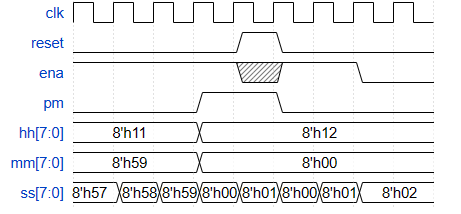- 2019.2.1串讲心得
梧桐70
虽然看过海灵格老师家庭系统排列的书,但还是不会应用,不能透过情绪剖析家庭系统中的问题,内心充满了对这本书的期待。通过屹峥老师的串讲,贯通了全书内容,盼望老师能用实例来加深对书中内容的理解。没有书,去网上找电子书没找到,学习群中听读就成了主要的学习方式。
- 2021-03-18 Linux进阶-from Biotrainee
乔帮主_d2ac
vim编辑器Vim编辑器:大多数Linux都会自带的文本编辑器。功能强大:代码补全、编译及错误跳转等方便编程的功能特别丰富,在程序员中被广泛使用。功能强大到其官方现在对自己的定位是“程序开发工具”Vim编辑器:三种模式image.png命令模式方向键或者hjkl^和$:快速到所在行的开头和末尾(用0也可以到开头)30j:向下移动30行(数字+方向进行快速移动)ctrl+f或b:上下翻页(forwa
- AutoGen C#三步变强:比Python还野的多AI协作实战!
墨瑾轩
一起学学C#【四】c#python人工智能
关注墨瑾轩,带你探索编程的奥秘!超萌技术攻略,轻松晋级编程高手技术宝库已备好,就等你来挖掘订阅墨瑾轩,智趣学习不孤单即刻启航,编程之旅更有趣一、第一步:环境搭建——给AutoGen装上"AI乐高积木"目标:用C#搭建AutoGen基础环境,像组装乐高一样准备工具。步骤:克隆AutoGen项目:访问AutoGenGitHub仓库,克隆到本地:gitclonehttps://github.com/mi
- C#进行串口应用开发如何处理串口的异常情况
openwin_top
c#串口应用开发问题系列c#开发语言串口通讯上位机
python编程示例系列python编程示例系列二python的Web神器Streamlit如何应聘高薪职位C#视觉应用开发问题系列c#串口应用开发问题系列microPythonPython最小内核源码解析NI-motion运动控制c语言示例代码解析在C#中进行串口应用开发时,处理串口的异常情况是非常重要的。常见的串口异常包括端口不可用、数据传输错误、超时等
- 挑战1000天演讲打卡的第627天:女儿皮肤过敏。
开心快乐幸福美满
上个8月28号女儿陪我去杭州学习体质养生的课,这个课前后加起来是五天,在这五天的日子里我每天六点起床九点上课,中午12点下课,下午2点上课5点结束。女儿在这五天的日子里晚上不睡白天不起,结果在课程结束的前一天孩子身上长了好多的小疹子而且很痒很痒,看着孩子满身的小疹子,又痒的难受,实在是好心疼可是又不知道怎么办?后来就带着孩子去了杭州的医院看了一下,医生说是荨麻疹,然后晚上给她挂了些盐水,还开了点药
- AI 智能运维,重塑大型企业软件运维:从自动化到智能化的进阶实践
AI、少年郎
人工智能运维自动化
一、引言:企业软件运维的智能化转型浪潮在数字化转型加速的背景下,大型企业软件架构日益复杂,微服务、多云环境、分布式系统的普及导致传统运维模式面临效率瓶颈。AI技术的渗透催生了智能运维(AIOps)的落地,通过机器学习、大模型、智能Agent等技术,实现从"人工救火"到"智能预防"的范式转变。本文结合头部企业实践,解析AI在运维领域的核心应用场景、技术架构及未来趋势,特别针对基础运维中流程重构、技术
- Spring AI 概述与功能简介
drebander
AI编程spring人工智能java
SpringAI是一个由Spring团队开发的开源框架,旨在为人工智能(AI)和机器学习(ML)提供一个成熟且高效的开发平台。它将Spring生态系统的设计理念应用于AI开发,尤其强调模块化、可移植性以及简洁的集成。SpringAI提供了丰富的功能,涵盖从AI模型的调用到与数据库的集成等多个方面,帮助开发者构建和管理AI驱动的应用程序。1.SpringAI背景SpringAI的背景源于Spring
- Spring AI从入门到精通:构建智能Spring应用的全面指南
java干货仓库
Spring八股文汇总大模型spring人工智能java
随着人工智能技术的快速发展,将大语言模型(LLM)与企业应用集成已成为趋势。SpringAI作为Spring官方推出的AI集成框架,为开发者提供了便捷、标准化的方式来构建智能应用。本文将从基础概念到高级应用,全面介绍SpringAI的核心功能与实践技巧。一、SpringAI概述1.1什么是SpringAI?SpringAI是VMware于2023年推出的开源框架,旨在简化大语言模型(LLM)与Sp
- 2021-01-09
做个会思考的老师
写给我的小“猪”娃们亲爱的小猪娃们,新年好!之所以想到要给你们写这封信,源于这段时间来你们带给我的惊喜和改变。不知从什么时候开始,我们的课堂有了灵气,我们的互动也有了默契。每一节课,你们都在用自己的思考,自己的表达向我展示你们的进步。课堂上,最喜欢看到你们认真倾听其他同学的想法时那专注的神情,最喜欢听到你们说:“老师,我还有不同的想法!”你们现在所表现出来的学习状态,和开学时简直是有了180°的大
- 大前端开发者如何应对 AI 浪潮:技能提升与职业发展规划
欧阳天羲
大前端与AI的深度融合#AI大前端行业应用与趋势篇人工智能前端
AI技术的爆发正深刻重塑大前端领域的技术栈与职业边界——从代码生成到智能交互,从自动化测试到自主化应用,AI不再是“可选技能”,而是“生存必备”。对于前端开发者而言,这既是挑战(传统技能贬值加速),更是机遇(新职业赛道涌现)。本文将系统梳理AI时代前端开发者的技能升级路线图,解析三大核心职业方向的能力要求,并提供可落地的学习路径与实践方案,帮助开发者在技术变革中实现竞争力跃迁。一、AI时代对大前端
- python爬虫从入门到精通
大模型猫叔
python爬虫数据库
目录一、正确认识Python爬虫二、了解爬虫的本质1.熟悉Python编程2.了解HTML3.了解网络爬虫的基本原理4.学习使用Python爬虫库三、了解非结构化数据的存储1.本地文件2.数据库四、掌握各种技巧,应对特殊网站的反爬措施1.User-Agent2.Cookies3.IP代理五、学习爬虫框架,搭建工程化的爬虫1.创建Scrapy项目2.创建Spider3.编写Spider4.运行Spi
- 《开学第一课》拍得真好
敏儿好学300
2021.9.2星期四晴昨晚,女儿下自习回来,特别说起晚上班里收看了央视录制的《开学第一课》,她说很受感动。从她迫切想分享的样子,看得出来这一期的开学第一课对她真正的起到了教育作用,竟比我们经常的苦口婆心、语重心长要省力省时许多。今晚抽出时间补看了《开学第一课》,一个半小时的节目,内容丰富,充满积极向上的正能量,能够激发青少年的理想,以及为理想而努力学习的决心。其中,最受感动的是塔吉克族守边员拉齐
- 2025年面试官常用的前端开发笔试考题
豆豆(前端开发+ui设计)
vue.jsjavascript前端面试职场和发展
填空题(20道)ReactHooks中,用于模拟类组件生命周期componentDidMount的Hook是________。useEffect在Vue3中,使用________API可以替代Vue2中的data和methods。CompositionWebpack的________插件可以帮助将CSS提取到单独的文件中。MiniCssExtractPlugin在JavaScript中,Promi
- 设计模式学习笔记06-Decorator模式
百恼神烦
本文主要是看了《设计模式》做的笔记和思考,在此分享仅代表个人观点,如有不对的地方欢迎批评和指正。基础当出现需要多个组件组成新的部件,同时不想增加类的数量(即不希望通过继承解决),可以考虑使用Decorator(装饰)模式。该模式下,通过不断地将部件放置到修饰物中,形成新的对象,并且修饰物可以负责将行为(职责)依次向内传递至部件,UML图如下:Decorator模式-UML.png使用时是将部件放入
- 从服务实例的元数据中获取配置值 vs 从本地配置文件中获取配置值
在微服务架构中,配置管理是保障系统灵活运行的核心环节。开发者常面临选择困境:该从服务实例元数据(如instance.getMetadata().get("weight"))还是本地配置文件(如@Value("${weight}"))获取配置?两者有何本质区别?能否随意互换?本文将整合两种配置获取方式的核心特性,从技术原理到实际应用进行全面解析。一、两种配置获取方式的核心原理与示例1.服务实例元数据
- 210119 一日三省
康永盛
210119一日三省1)今天要感恩的人与事:开市时段盯盘,下午溜娃、理发,感恩新一年,能迅速重新开启新生活主线。2)今天做的不够好的地方:日后,当尽量多听音频,代替视频与交流。3)今天学习或强化的学识、思维与灵感:成长的几个关键词:思考、选择、目标、行动、进取、挑战。成长是成熟而不圆滑,老练而不世故,进取而不鲁莽,果断而不愚蠢,平凡而不平庸,探索而不迷惑,孤独并不孤单,失败不会气馁等等。
- 在二分类任务中如何处理包含中文的类别特征
Dush32
分类数据挖掘人工智能机器学习数据分析
在机器学习中,处理类别特征(CategoricalFeatures)是常见的任务,特别是在中文数据中,很多类别特征如省份、城市等都是字符串类型。如何将这些类别变量转换为模型可以理解的数值格式,是每个数据科学家都必须面对的挑战。在这篇文章中,我们将探讨两种常见的类别特征编码方法:astype('category')和LabelEncoder,并比较它们在二分类任务中的效果。我们以“省份”这一类别特征
- 基于用户画像的商品推荐系统
Dush32
机器学习人工智能python推荐算法
随着人工智能和大数据技术的进步,产品推荐系统成为了现代广告与电商平台中不可或缺的部分。通过深度挖掘用户的行为数据,能够为广告主提供精准的用户画像,从而更高效地推荐相关产品,提升购买转化率。本项目基于科大讯飞AI营销云大赛的赛题,目的是利用用户画像进行产品推荐,预测用户是否会购买相应商品。我们使用了机器学习的二分类模型,通过分析用户的性别、年龄、常驻地、机型等信息,来判断用户的付费行为。项目目标:本
- 从 C# 转 Python 第三天:文件操作、异常处理与错误日志实践
AI、少年郎
java前端数据库c#文件操作异常处理
在软件开发的广阔领域中,Python和C#作为两种备受瞩目的编程语言,各自凭借独特的特性和强大的功能,在不同的应用场景中展现出卓越的性能。对于开发者而言,深入理解并熟练掌握这两门语言的核心技能,如文件操作与异常处理,不仅是提升个人编程能力的关键,更是在复杂多变的项目开发中应对各种挑战、确保程序稳定运行的必备条件。在日常的编程工作中,文件操作是实现数据持久化存储、读取配置信息以及处理各种数据文件的基
- python爬虫入门(小白五分钟从入门到精通)
一百天成为python专家
python爬虫开发语言网络爬虫python3.11ipython
网络爬虫的介绍本节主要介绍Pytbon语言中支持网络爬虫的库,此外还将介绍如何获取网站的爬取规则,读者在学习和践过程中一定要严格遵守网站提供的爬取规则。网络爬虫网络爬虫通俗来讲就是使用代码将HTML网页的内容下载到本地的过程。爬取网页主要是为了获取网中的关键信息,例如网页中的数据、图片、视频等。Python语言中提供了多个具有爬虫功能的库,下面将具urHIib库:是Python自带的标准库,无须下
- 六项精进打卡
Lucky李晓伟
姓名:李晓伟公司:阿里米丁节能科技(苏州)有限公司【日精进打卡第260天】【知~学习】1、付出不一定有收获,但是不付出就一定没有收获,所以无论得到还是失去,都要坚持不懈并付出不亚于任何人的努力。5、满怀感谢之心,思善行善,真挚的反省,严格的自律,不懈的磨练心志,提升人格。2、我们不可能一个人存活在这个世界上,这个世界一定是共生而不是互相残杀3、「以责人之心责已,以恕已之心恕人」4、不管遇到什么事,
- Spring Boot 自动配置:从 spring.factories 到 AutoConfiguration.imports 的演变
大手你不懂
Javaspringspringspringboot后端
引言SpringBoot的自动配置机制是其【开箱即用】特性的核心支撑,通过减少显式配置和简化开发流程,显著提升了开发效率。随着SpringBoot版本的迭代,自动配置的实现机制也在不断优化。本文将深入解析spring.factories和AutoConfiguration.imports的演进历程、技术差异、使用场景及迁移策略,帮助开发者更好地理解和应用SpringBoot的自动配置能力。一、自动
- 小谈相机的学习过程
前言博主本人并非专职相机开发,还涉及系统的其他几个模块,虽然都属于owner,但是都还在学习探索的一个过程,自认为掌握还不够细致,此篇文章仅梳理,总结,印证自己近五年相机模块的一个学习过程,以及对后续相机学习的一个方向,讲的也是比较宽泛,后续有空的话会考虑挑几个实用且常见的一些应用流程详细讲一下,但也希望能挤出时间来,博主实在太忙了~1.CameraLV1我最早接触的相机肯定是高通Android系
- Python 虚拟环境管理工具 UV:从安装到高级用法的详细教程
Dush32
pythonuv开发语言人工智能机器学习分类
前言在Python开发中,管理不同项目的依赖包和Python版本是开发者常常遇到的问题。不同项目可能依赖不同版本的库,甚至同一个库在不同版本下的行为可能不同。为了避免这些问题,使用虚拟环境成为了解决方案。虚拟环境通过隔离每个项目的依赖,避免了版本冲突问题。在Python中,常用的虚拟环境管理工具有virtualenv、venv和一些第三方工具,如UV。本文将详细介绍如何使用UV虚拟环境管理工具,从
- rollup学习--02.常用插件学习
小q
这篇笔记总结rollup打包常用的插件常用插件我们在使用插件时可以在plugin汇总中查找:传送门和传送门,另外一些没列举的需要大家自行的去查阅啦,下面我聚几个常用的plugin。node模块的引入rollup因为是及与es规范的,所以在引入node模块时需要对应的插件。这里需要安装@rollup/plugin-node-resolve和@rollup/plugin-commonjs两个插件。ya
- 前端面试专栏-工程化:27.工程化实践(CI/CD、代码规范)
爱分享的程序员
前端面试通关指南前端面试ci/cd
欢迎来到前端面试通关指南专栏!从js精讲到框架到实战,渐进系统化学习,坚持解锁新技能,祝你轻松拿下心仪offer。前端面试通关指南专栏主页前端面试专栏规划详情项目实战与工程化模块-工程化实践(CI/CD、代码规范)在团队协作的项目实战中,工程化实践是保障开发效率与代码质量的核心支柱。当项目规模从几人协作扩展到数十人团队时,单纯依赖人工沟通和经验规范会导致效率低下、bug频发。本文聚焦工程化的两大核
- 前端面试专栏-工程化:28.团队协作与版本控制(Git)
爱分享的程序员
前端面试通关指南node.js前端javascript
欢迎来到前端面试通关指南专栏!从js精讲到框架到实战,渐进系统化学习,坚持解锁新技能,祝你轻松拿下心仪offer。前端面试通关指南专栏主页前端面试专栏规划详情项目实战与工程化模块-团队协作与版本控制(Git)在多人协作的项目中,代码的版本管理是保障开发效率与代码质量的核心环节。Git作为目前最流行的分布式版本控制系统,不仅能追踪代码变更历史,更能通过分支策略、协作流程规范团队工作方式。本文从实战角
- Node.js特训专栏-实战进阶:16. RBAC权限模型设计
爱分享的程序员
Node.jsnode.js安全算法前端
欢迎来到Node.js实战专栏!在这里,每一行代码都是解锁高性能应用的钥匙,让我们一起开启Node.js的奇妙开发之旅!Node.js特训专栏主页专栏内容规划详情我将从RBAC权限模型的基础概念、核心组件讲起,详细阐述其设计原则、数据库模型设计,还会结合代码示例展示在实际开发中的实现方式,以及探讨模型的扩展与优化。RBAC权限模型设计:从理论到实战的完整方案在现代应用系统中,权限管理是保障数据安全
- 前端开发好用的AI工具介绍
爱分享的程序员
人工智能AI相关人工智能
以下是前端开发中提升效率的AI工具推荐,涵盖代码生成、UI设计、调试优化等场景:一、代码生成与辅助工具工具名称特点适用场景GitHubCopilot基于OpenAI,智能代码补全(支持JS/TS/React/Vue)快速生成代码片段、函数逻辑Codeium免费开源,多语言支持,IDE插件丰富(VSCode/WebStorm)代码补全、注释生成AmazonCodeWhispererAWS生态集成,支
- android分区设计,构建 ODM 分区 | Android 开源项目 | Android Open Source Project
Android10支持使用Android构建系统构建/odm分区。ODM分区简介原始设计制造商(ODM)能够为其特定设备(开发板)自定义系统芯片(SoC)供应商板级支持包(BSP)。这样,他们就可以为板级组件、板级守护进程或者其基于硬件抽象层(HAL)的自有功能实现内核模块。他们可能还需要替换或自定义SoC组件。在之前的Android版本中,对于使用相同SoC(或使用同一系列中的不同SoC)的设备
- js动画html标签(持续更新中)
843977358
htmljs动画mediaopacity
1.jQuery 效果 - animate() 方法 改变 "div" 元素的高度: $(".btn1").click(function(){ $("#box").animate({height:"300px
- springMVC学习笔记
caoyong
springMVC
1、搭建开发环境
a>、添加jar文件,在ioc所需jar包的基础上添加spring-web.jar,spring-webmvc.jar
b>、在web.xml中配置前端控制器
<servlet>
&nbs
- POI中设置Excel单元格格式
107x
poistyle列宽合并单元格自动换行
引用:http://apps.hi.baidu.com/share/detail/17249059
POI中可能会用到一些需要设置EXCEL单元格格式的操作小结:
先获取工作薄对象:
HSSFWorkbook wb = new HSSFWorkbook();
HSSFSheet sheet = wb.createSheet();
HSSFCellStyle setBorder = wb.
- jquery 获取A href 触发js方法的this参数 无效的情况
一炮送你回车库
jquery
html如下:
<td class=\"bord-r-n bord-l-n c-333\">
<a class=\"table-icon edit\" onclick=\"editTrValues(this);\">修改</a>
</td>"
j
- md5
3213213333332132
MD5
import java.security.MessageDigest;
import java.security.NoSuchAlgorithmException;
public class MDFive {
public static void main(String[] args) {
String md5Str = "cq
- 完全卸载干净Oracle11g
sophia天雪
orale数据库卸载干净清理注册表
完全卸载干净Oracle11g
A、存在OUI卸载工具的情况下:
第一步:停用所有Oracle相关的已启动的服务;
第二步:找到OUI卸载工具:在“开始”菜单中找到“oracle_OraDb11g_home”文件夹中
&
- apache 的access.log 日志文件太大如何解决
darkranger
apache
CustomLog logs/access.log common 此写法导致日志数据一致自增变大。
直接注释上面的语法
#CustomLog logs/access.log common
增加:
CustomLog "|bin/rotatelogs.exe -l logs/access-%Y-%m-d.log
- Hadoop单机模式环境搭建关键步骤
aijuans
分布式
Hadoop环境需要sshd服务一直开启,故,在服务器上需要按照ssh服务,以Ubuntu Linux为例,按照ssh服务如下:
sudo apt-get install ssh
sudo apt-get install rsync
编辑HADOOP_HOME/conf/hadoop-env.sh文件,将JAVA_HOME设置为Java
- PL/SQL DEVELOPER 使用的一些技巧
atongyeye
javasql
1 记住密码
这是个有争议的功能,因为记住密码会给带来数据安全的问题。 但假如是开发用的库,密码甚至可以和用户名相同,每次输入密码实在没什么意义,可以考虑让PLSQL Developer记住密码。 位置:Tools菜单--Preferences--Oracle--Logon HIstory--Store with password
2 特殊Copy
在SQL Window
- PHP:在对象上动态添加一个新的方法
bardo
方法动态添加闭包
有关在一个对象上动态添加方法,如果你来自Ruby语言或您熟悉这门语言,你已经知道它是什么...... Ruby提供给你一种方式来获得一个instancied对象,并给这个对象添加一个额外的方法。
好!不说Ruby了,让我们来谈谈PHP
PHP未提供一个“标准的方式”做这样的事情,这也是没有核心的一部分...
但无论如何,它并没有说我们不能做这样
- ThreadLocal与线程安全
bijian1013
javajava多线程threadLocal
首先来看一下线程安全问题产生的两个前提条件:
1.数据共享,多个线程访问同样的数据。
2.共享数据是可变的,多个线程对访问的共享数据作出了修改。
实例:
定义一个共享数据:
public static int a = 0;
- Tomcat 架包冲突解决
征客丶
tomcatWeb
环境:
Tomcat 7.0.6
win7 x64
错误表象:【我的冲突的架包是:catalina.jar 与 tomcat-catalina-7.0.61.jar 冲突,不知道其他架包冲突时是不是也报这个错误】
严重: End event threw exception
java.lang.NoSuchMethodException: org.apache.catalina.dep
- 【Scala三】分析Spark源代码总结的Scala语法一
bit1129
scala
Scala语法 1. classOf运算符
Scala中的classOf[T]是一个class对象,等价于Java的T.class,比如classOf[TextInputFormat]等价于TextInputFormat.class
2. 方法默认值
defaultMinPartitions就是一个默认值,类似C++的方法默认值
- java 线程池管理机制
BlueSkator
java线程池管理机制
编辑
Add
Tools
jdk线程池
一、引言
第一:降低资源消耗。通过重复利用已创建的线程降低线程创建和销毁造成的消耗。第二:提高响应速度。当任务到达时,任务可以不需要等到线程创建就能立即执行。第三:提高线程的可管理性。线程是稀缺资源,如果无限制的创建,不仅会消耗系统资源,还会降低系统的稳定性,使用线程池可以进行统一的分配,调优和监控。
- 关于hql中使用本地sql函数的问题(问-答)
BreakingBad
HQL存储函数
转自于:http://www.iteye.com/problems/23775
问:
我在开发过程中,使用hql进行查询(mysql5)使用到了mysql自带的函数find_in_set()这个函数作为匹配字符串的来讲效率非常好,但是我直接把它写在hql语句里面(from ForumMemberInfo fm,ForumArea fa where find_in_set(fm.userId,f
- 读《研磨设计模式》-代码笔记-迭代器模式-Iterator
bylijinnan
java设计模式
声明: 本文只为方便我个人查阅和理解,详细的分析以及源代码请移步 原作者的博客http://chjavach.iteye.com/
import java.util.Arrays;
import java.util.List;
/**
* Iterator模式提供一种方法顺序访问一个聚合对象中各个元素,而又不暴露该对象内部表示
*
* 个人觉得,为了不暴露该
- 常用SQL
chenjunt3
oraclesqlC++cC#
--NC建库
CREATE TABLESPACE NNC_DATA01 DATAFILE 'E:\oracle\product\10.2.0\oradata\orcl\nnc_data01.dbf' SIZE 500M AUTOEXTEND ON NEXT 50M EXTENT MANAGEMENT LOCAL UNIFORM SIZE 256K ;
CREATE TABLESPA
- 数学是科学技术的语言
comsci
工作活动领域模型
从小学到大学都在学习数学,从小学开始了解数字的概念和背诵九九表到大学学习复变函数和离散数学,看起来好像掌握了这些数学知识,但是在工作中却很少真正用到这些知识,为什么?
最近在研究一种开源软件-CARROT2的源代码的时候,又一次感觉到数学在计算机技术中的不可动摇的基础作用,CARROT2是一种用于自动语言分类(聚类)的工具性软件,用JAVA语言编写,它
- Linux系统手动安装rzsz 软件包
daizj
linuxszrz
1、下载软件 rzsz-3.34.tar.gz。登录linux,用命令
wget http://freeware.sgi.com/source/rzsz/rzsz-3.48.tar.gz下载。
2、解压 tar zxvf rzsz-3.34.tar.gz
3、安装 cd rzsz-3.34 ; make posix 。注意:这个软件安装与常规的GNU软件不
- 读源码之:ArrayBlockingQueue
dieslrae
java
ArrayBlockingQueue是concurrent包提供的一个线程安全的队列,由一个数组来保存队列元素.通过
takeIndex和
putIndex来分别记录出队列和入队列的下标,以保证在出队列时
不进行元素移动.
//在出队列或者入队列的时候对takeIndex或者putIndex进行累加,如果已经到了数组末尾就又从0开始,保证数
- C语言学习九枚举的定义和应用
dcj3sjt126com
c
枚举的定义
# include <stdio.h>
enum WeekDay
{
MonDay, TuesDay, WednesDay, ThursDay, FriDay, SaturDay, SunDay
};
int main(void)
{
//int day; //day定义成int类型不合适
enum WeekDay day = Wedne
- Vagrant 三种网络配置详解
dcj3sjt126com
vagrant
Forwarded port
Private network
Public network
Vagrant 中一共有三种网络配置,下面我们将会详解三种网络配置各自优缺点。
端口映射(Forwarded port),顾名思义是指把宿主计算机的端口映射到虚拟机的某一个端口上,访问宿主计算机端口时,请求实际是被转发到虚拟机上指定端口的。Vagrantfile中设定语法为:
c
- 16.性能优化-完结
frank1234
性能优化
性能调优是一个宏大的工程,需要从宏观架构(比如拆分,冗余,读写分离,集群,缓存等), 软件设计(比如多线程并行化,选择合适的数据结构), 数据库设计层面(合理的表设计,汇总表,索引,分区,拆分,冗余等) 以及微观(软件的配置,SQL语句的编写,操作系统配置等)根据软件的应用场景做综合的考虑和权衡,并经验实际测试验证才能达到最优。
性能水很深, 笔者经验尚浅 ,赶脚也就了解了点皮毛而已,我觉得
- Word Search
hcx2013
search
Given a 2D board and a word, find if the word exists in the grid.
The word can be constructed from letters of sequentially adjacent cell, where "adjacent" cells are those horizontally or ve
- Spring4新特性——Web开发的增强
jinnianshilongnian
springspring mvcspring4
Spring4新特性——泛型限定式依赖注入
Spring4新特性——核心容器的其他改进
Spring4新特性——Web开发的增强
Spring4新特性——集成Bean Validation 1.1(JSR-349)到SpringMVC
Spring4新特性——Groovy Bean定义DSL
Spring4新特性——更好的Java泛型操作API
Spring4新
- CentOS安装配置tengine并设置开机启动
liuxingguome
centos
yum install gcc-c++
yum install pcre pcre-devel
yum install zlib zlib-devel
yum install openssl openssl-devel
Ubuntu上可以这样安装
sudo aptitude install libdmalloc-dev libcurl4-opens
- 第14章 工具函数(上)
onestopweb
函数
index.html
<!DOCTYPE html PUBLIC "-//W3C//DTD XHTML 1.0 Transitional//EN" "http://www.w3.org/TR/xhtml1/DTD/xhtml1-transitional.dtd">
<html xmlns="http://www.w3.org/
- Xelsius 2008 and SAP BW at a glance
blueoxygen
BOXelsius
Xelsius提供了丰富多样的数据连接方式,其中为SAP BW专属提供的是BICS。那么Xelsius的各种连接的优缺点比较以及Xelsius是如何直接连接到BEx Query的呢? 以下Wiki文章应该提供了全面的概览。
http://wiki.sdn.sap.com/wiki/display/BOBJ/Xcelsius+2008+and+SAP+NetWeaver+BW+Co
- oracle表空间相关
tongsh6
oracle
在oracle数据库中,一个用户对应一个表空间,当表空间不足时,可以采用增加表空间的数据文件容量,也可以增加数据文件,方法有如下几种:
1.给表空间增加数据文件
ALTER TABLESPACE "表空间的名字" ADD DATAFILE
'表空间的数据文件路径' SIZE 50M;
&nb
- .Net framework4.0安装失败
yangjuanjava
.netwindows
上午的.net framework 4.0,各种失败,查了好多答案,各种不靠谱,最后终于找到答案了
和Windows Update有关系,给目录名重命名一下再次安装,即安装成功了!
下载地址:http://www.microsoft.com/en-us/download/details.aspx?id=17113
方法:
1.运行cmd,输入net stop WuAuServ
2.点击开
